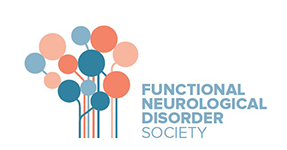Program
|
|
|
|
|
Opening KeynoteSpeaker:
|
|
|
Course Introduction
|
|
|
Decoding Paroxysmal Neurological Episodes: A Practical ApproachSpeaker:
From the ED to the clinic, how do you approach a paroxysmal neurological episode? Learn how to build a patient rapport and refine differential diagnoses using a careful patient history. This will include an exploration of co-morbidities, experiential symptoms, and semiology, within a bio-psycho-social framework, with practical tips and pitfalls to avoid for both adult and pediatric populations. |
|
|
Beyond Spikes: EEG and Non EEG techniques in Accurate Seizure DiagnosisSpeaker:
Misdiagnoses of seizures are common due to the misinterpretation of EEG, which includes both “over-reading” and “under-reading” of EEG, but also recognizes the need for other data beyond EEG. This session discusses how to navigate the complexities of EEG interpretation, avoid pitfalls, and leverage new technologies, including novel point-of-care ambulatory EEG technologies and AI-assisted technologies, in both home and clinical (ICU, EMD) settings, and the need for induction. |
|
|
Seizure Mimics & Chameleons (interactive mixed clinical case videos)Speaker:
A variety of mimics can be misdiagnosed as epileptic seizures. These include functional seizures, cardiac events, syncope, catatonia, parasomnias, breath-holding spells, paroxysmal movement disorders, and autoimmune conditions. Conversely, there are a small but important number of types of epileptic seizures that may be misdiagnosed as functional in nature. Through video case studies, this session explores how to navigate complex clinical presentations in both adults and children. |
|
|
Listening to Patients: Insights for Better OutcomesSpeakers:
What can we learn from patients? This session highlights the lived experiences of patients with either functional or epileptic and functional, seizures. This session will highlight the differences in seizure experience and demonstrate how patient-centered care improves outcomes. |
|
|
Integrating Functional Seizures into My Clinical Practice: Building a ProgramSpeakers:
Describe the different models of care, and show how a program can be a win-win for patients, physicians, and administrators. Data Cost, People involved, How to advocate for resources; What were the challenges? How did you overcome them? Data collection on patient and physician satisfaction, and outcomes? |
|
|
The Role of the Mental Health Specialist in Assessment of Seizure DisordersSpeaker:
Learn how mental health (anxiety, depression, and trauma) and neuro-developmental conditions (ID, ASD, ADHD) interact with seizure (epileptic or functional) disorders, and how neuropsychological assessments can inform diagnosis and treatment for both pediatric and adult patients. |
|
|
Debate: Does The Role of the Neurologist Extend Beyond Diagnosis in Patients with Functional Seizures?Speakers:
Historically, neurologists and epilepsy specialists have viewed their role as solely diagnostic in patients with functional seizures. In this short debate, two experts will present the reasons why the role of neurologists should or should not extend beyond simply diagnosis. There will be 2 minutes for a brief electronic vote, and then brief questions/discussion. |
|
|
The Role of Neurologist: Making a Diagnosis and BeyondSpeaker:
Neurologists are uniquely positioned to lead the diagnostic and treatment triage process. This session discusses how to balance clinical acumen with emerging tools to provide accurate and compassionate care for patients with complex seizure presentations. It will also cover how effective communication of a functional seizure diagnosis is the first step of therapy. Finally, it will cover challenges in medications, managing dual diagnosis, and how neurologists can begin formulation and triage for therapy for people with functional seizures. |
|
|
Closing Day RemarksCourse Directors:
|
Mechanisms and Therapeutics |
|
|
|
Day 2 - Overview |
|
|
Neurobiology of Functional Seizures: A Cutting-Edge PerspectiveSpeaker:
The neurobiological understanding of functional seizures is growing. This session will cover the neuroscience of functional seizures, exploring the latest research on interoception, predictive coding, and neural network dysfunctions. These mechanistic insights have direct implications for diagnosis and treatment. |
|
|
Innovations in Imaging and Functional SeizuresSpeaker:
MRI, SPECT, PET, and fMRI: How do advanced imaging modalities contribute to our understanding of functional seizures? This session highlights how these imaging modalities have contributed to a better understanding of how and why functional seizures arise. |
|
|
The Role of the Mental Health Specialist in the Treatment of Seizure DisordersSpeaker:
Collaboration is the key to managing complex seizure disorders. This session outlines how neuropsychiatrists and mental health clinicians can support the management of seizure disorders. It will include the management of common co-morbidities such as depression, anxiety, and trauma, the core psychologically based treatments of functional seizures, and the interdisciplinary nature of management. |
|
|
Beyond the Diagnosis: Managing the Complex Patient PanelPanelists:
Moderator:
Using challenging real-world cases, this interactive session addresses common clinical dilemmas: emergency management of prolonged functional seizures, patients with both functional and epileptic seizures who are surgical candidates, engaging patients in treatment pathways, rescue seizure protocols for all seizure patients, diagnosis and treatment of medical and psychiatric comorbidities. Practical strategies for, psychoeducational resources, driving, disability, dealing with requests for forms, medication adjustments (to wean, or not to wean), when and how to reassess patients (eg. use of EEG testing), and what to do when there are no local specialists for FND will also be discussed. |
|
|
Closing Remarks: Functional Seizures in the 21st CenturySpeaker:
A forward-looking summary of how advancing science and interdisciplinary care are transforming our understanding and management of functional seizures. |
|
|
Final HousekeepingCourse Directors:
|


 Barbara Dworetzky, MD, FAAN, FAES, FANA
Barbara Dworetzky, MD, FAAN, FAES, FANA Sara Finkelstein, MD, MSc
Sara Finkelstein, MD, MSc Michael Sperling, MD
Michael Sperling, MD Claus Reinsberger, MD, PhD
Claus Reinsberger, MD, PhD
 Raquel Lopez, MD, FAES
Raquel Lopez, MD, FAES
 Meagan Watson, MPH, MBA
Meagan Watson, MPH, MBA Aaron Fobian, PhD
Aaron Fobian, PhD
 Mahinda Yogarajah, MBBS, MRCP, PhD
Mahinda Yogarajah, MBBS, MRCP, PhD


 Dara Albert, DO, MEd
Dara Albert, DO, MEd Chadrick Lane, MD
Chadrick Lane, MD
 W. Curt LaFrance, Jr., MD, MPH
W. Curt LaFrance, Jr., MD, MPH